Iran’s massive attack directly on Israel over the weekend has once again reignited discussions about its air defense capabilities. Israel’s multi-layered air defense system, including the Iron Dome, has helped it intercept virtually all of the projectiles launched by Iran.
The Middle Eastern country’s famous Iron Dome air defense system is something Ukraine has long wanted but has yet to get. It has also been mentioned in comments by both European leaders and defense companies.
Specifically, Polish Prime Minister Donald Tusk has just announced that his country plans to participate in a project to develop an air defense system across Europe to prevent potential attacks by unmanned aerial vehicles (UAVs) and missiles.
Speaking at a press conference with Danish Prime Minister Mette Frederiksen in Warsaw on April 15, Mr. Tusk said the recent Iranian attack confirmed that having a system like Israel's Iron Dome air defense system was very important.
“There is no reason why Europe should not develop its own shield against missiles and drones,” Mr. Tusk said. “It does not take much imagination to understand that we could also be in the danger zone.”
The Polish prime minister also said that Denmark had supported his plan to join the German-led European Sky Shield Initiative (ESSI), which currently includes countries such as the UK and Finland.

The Iron Dome system is intercepting rockets launched from the Gaza Strip towards Israel. Photo: Defense News
Even before Iran's attack on Israel, the head of Europe's largest arms maker Rheinmetall recommended that EU leaders consider installing short-range air defense systems similar to Iron Dome.
The comments by Rheinmetall CEO Armin Papperger last month come as EU capitals ramp up military spending amid growing concerns about airborne threats and are looking to address long-standing shortcomings in existing defense systems.
Short-range air defenses are “something they want to create in Europe,” Mr. Papperger said, pointing to one aspect of the Berlin-backed Sky Shield initiative.
“I also think it would be a good idea to have a European solution similar to Iron Dome and beyond,” the CEO told the Financial Times on March 20.
The Iron Dome has a range of up to 70km and has been used by Israel since 2011 to intercept short-range rockets. Shielding large swathes of mainland Europe with a similar system has been dismissed by analysts as far-fetched, but EU countries have invested in a range of air defence technologies.
The CEO of another European defense company told the British newspaper that Europe already has “all the capabilities to create full air defense layers. So it’s just a matter of whether they decide to use them or not.”
In late 2022, German Chancellor Olaf Scholz announced the Sky Shield initiative to create an air and missile defense system to protect European skies by jointly procuring equipment.
Twenty-one European countries have signed up to the initiative, but France is not included. ESSI has angered Paris because it includes the procurement of air defense systems from Israeli and US companies while omitting systems such as the SAMP/T, which is being jointly developed by French and Italian firm MBDA.
Düsseldorf-based arms maker Rheinmetall said in February it had sold its Skyranger 30 short-range air defense system, which it said could be used against drones and other weapons, to the German armed forces for €600 million.
Integrated air and missile defence systems are seen as one of the EU's 22 defence capabilities priorities, with Brussels pushing member states to develop “full next-generation interoperability” in air defence that works with existing NATO systems.
The EU is also working on a new defense strategy that would promote joint procurement and for the first time set a target for buying from bloc manufacturers rather than the United States.
European defense industry CEOs also called for more cooperation and collaboration between companies to reduce duplication and strengthen the continent's industrial base in the long term .
Minh Duc (According to Bloomberg, Financial Times)
Source



![[Photo] Bustling Mid-Autumn Festival at the Museum of Ethnology](https://vphoto.vietnam.vn/thumb/1200x675/vietnam/resource/IMAGE/2025/10/4/da8d5927734d4ca58e3eced14bc435a3)

![[Photo] Solemn opening of the 8th Congress of the Central Public Security Party Committee, term 2025-2030](https://vphoto.vietnam.vn/thumb/1200x675/vietnam/resource/IMAGE/2025/10/4/f3b00fb779f44979809441a4dac5c7df)

![[Photo] General Secretary To Lam attends the 8th Congress of the Central Public Security Party Committee](https://vphoto.vietnam.vn/thumb/1200x675/vietnam/resource/IMAGE/2025/10/4/79fadf490f674dc483794f2d955f6045)




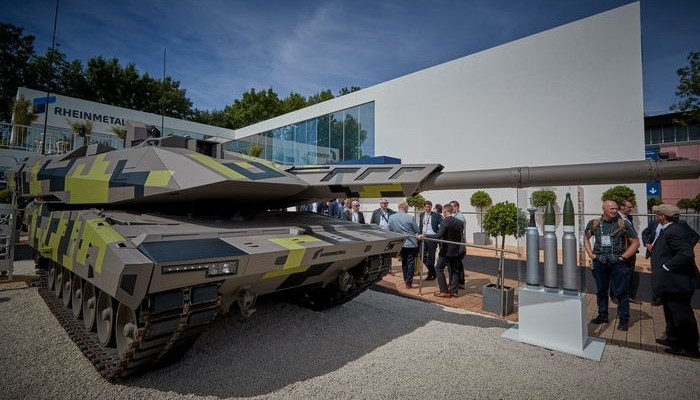


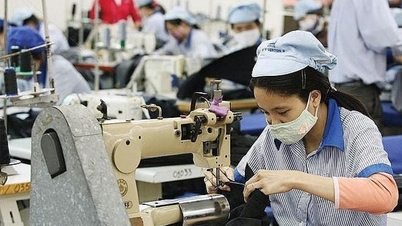



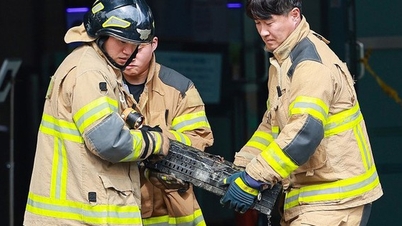

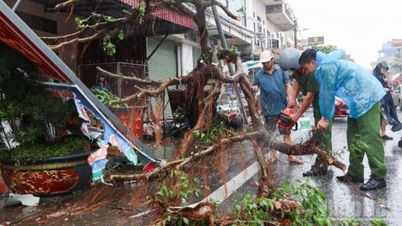






































![[VIDEO] Summary of Petrovietnam's 50th Anniversary Ceremony](https://vphoto.vietnam.vn/thumb/402x226/vietnam/resource/IMAGE/2025/10/4/abe133bdb8114793a16d4fe3e5bd0f12)

![[VIDEO] GENERAL SECRETARY TO LAM AWARDS PETROVIETNAM 8 GOLDEN WORDS: "PIONEER - EXCELLENT - SUSTAINABLE - GLOBAL"](https://vphoto.vietnam.vn/thumb/402x226/vietnam/resource/IMAGE/2025/7/23/c2fdb48863e846cfa9fb8e6ea9cf44e7)



















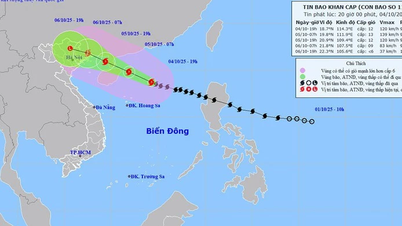














Comment (0)